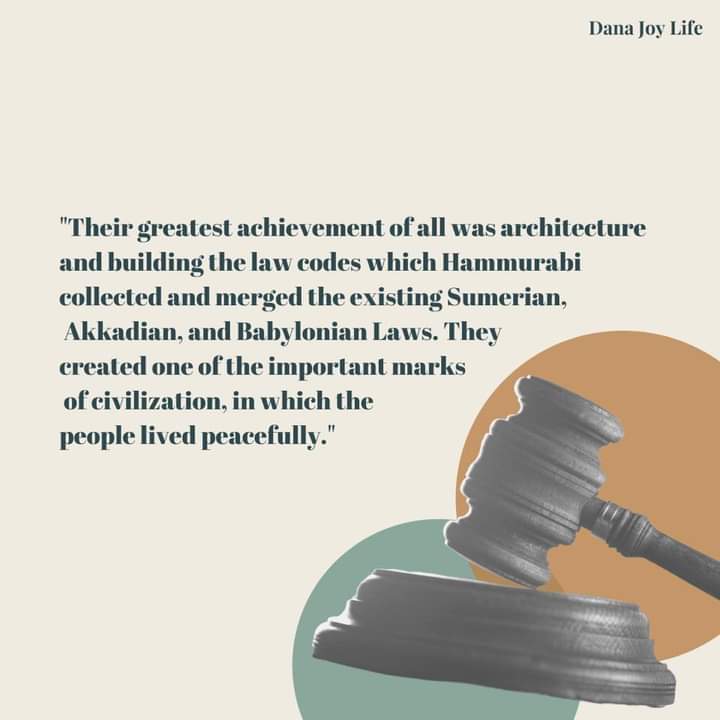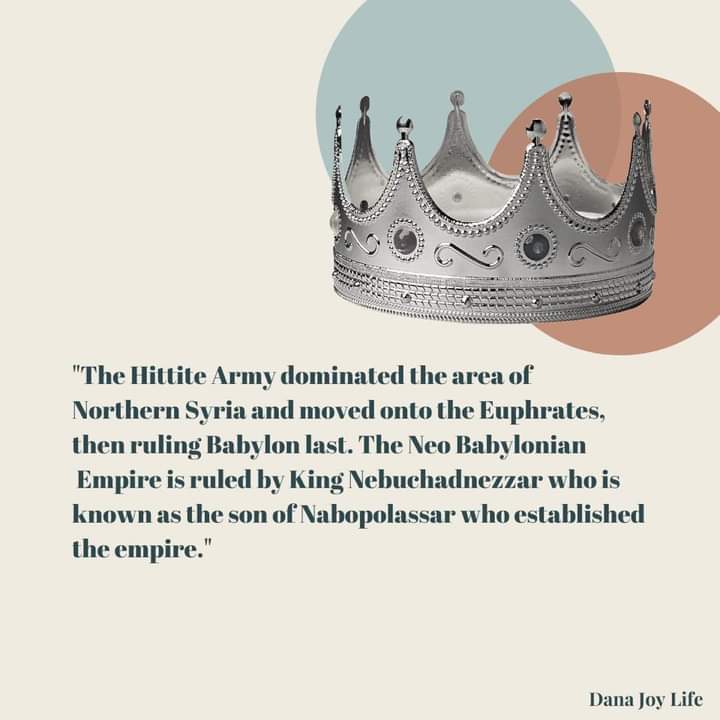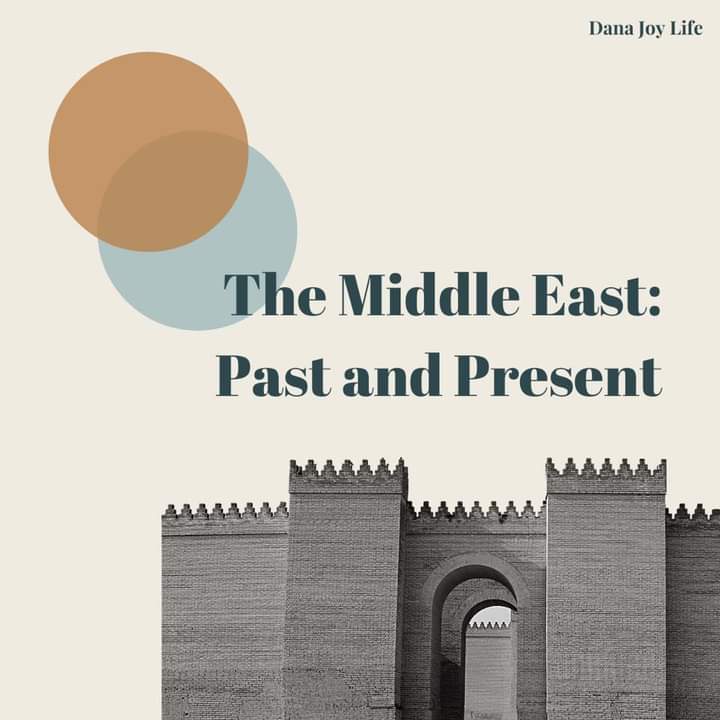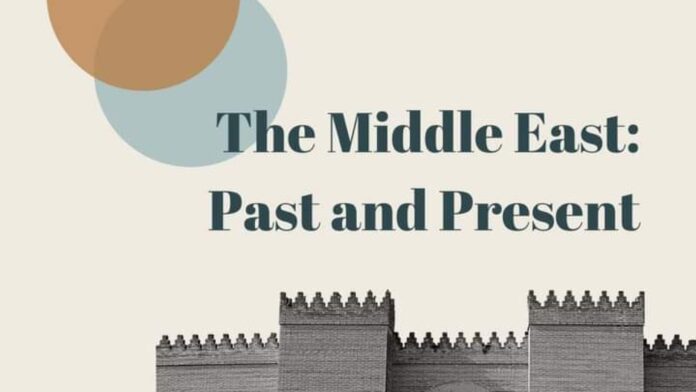THE MIDDLE EAST
By Ari Cabello 🌸
After the Golden Age of Ur, many empires rose and fell in the Fertile Crescent and other parts of the Middle East. The first empire after Sumer was the magnificent Babylonian empire. The ruins were located near Baghdad, between the Tigris and Euphrates Rivers. It was where the Tower of Babel was built 👀
“Babel” means “the gate of God” (in Akkadian) but in Hebrew, it means “to confuse.” God confused the proud people who tried to overpower Him by building a tower that reaches the heavens. The tower was discontinued and the people scattered across the world (Genesis 11) 🥺
The Sumerians ruled Ur but it couldn’t maintain control of Babylonia after the death of their ruler Ur-Nammu. Sumer was invaded by the Elamites — fierce people from the highlands of Iran. Then the same thing with Mesopotamia which was invaded by the Amorites. King Hammurabi ruled this time — bringing Mesopotamia under Babylonian rule, establishing the Old Babylonian Empire. But the successors of Hammurabi were not able to hold the empire as one. And the Kassites overpowered Babylonia and Mesopotamia causing chaos and conflict 🥺
The people of Babylonia maintained the culture of the Sumerians and Akkadians. They preserved the oldest works of their literature, the mythical lore “The Epic of Gilgamesh.” and “Enuma Elish, Babylonian Genesis.” The latter was created during the rule of Hammurabi to extol Babylon and its god Marduk. The notable mathematical feat they had was the “place-value-notation” which assigned a value to numbers based on the position. They also excelled in astronomical measurements and they got immersed in science, astrology, and astronomy too 👀
The greatest achievement of the Old Babylonian Empire was in government and law. Hammurabi collated and codified the existing Sumerian, Akkadian, and Babylonian Laws.
They created one of the important marks of civilization which helped people live peacefully 🤎
The Hittite Empire ruled Asia Minor (modern-day Turkey) and Syria from 1700 B.C through 700 B.C. The Hittites are best known for their extensive use of iron. The Hittite Army dominated Northern Syria and moved onto the Euphrates, then ruling Babylon. But the days of their rule were numbered because the Phrygians and Assyrians were already rising from the northwest and the southeast respectively 😳
The Assyrian Empire which ruled over the year 1100 B.C. was located northwest of Babylonia by the banks of the upper Tigris River. Their first great leader, Tiglath-pileser I, invaded Babylonia and named it the Assyrian Empire until the Assyrians conquered Nineveh, their great capital in 612 B.C. The Assyrian kings who were responsible for the downfall of the Northern Kingdom of Israel during 721 B.C. were Shalmaneser V and Sargon II. The last ruling monarch of the Assyrian Empire was Ashurbanipal who also built the first great library of Nineveh which contained the tablets written in cuneiform 👍🏻
The Chaldeans were a Semitic group of people from Arabia who united with Medes and Scythians that overpowered the Assyrian Empire in 600 B.C. and ruled by Nabopolassar. The Neo Babylonian Empire was ruled by his son, King Nebuchadnezzar. The Chaldeans are known for architecture and astronomy — especially the Hanging Gardens of Babylon — one of the Seven Wonders of the Ancient World. The prophet Daniel, one of the Jews exiled in Babylon later on became a very important official in the Babylonain empire 🤎
Cyrus the Great was the ruler of the Persian Empire. He was called by God as “my shepherd” and “my anointed” (Isaiah 44:28; 45:1) and was one of the world’s exceptional men. Daniel the prophet rose to greater power under Persian rule. Most probably, he told King Cyrus about Isaiah’s prophecies and God’s power behind his conquests 😊
“Thus saith Cyrus king of Persia, All the kingdoms of earth hath the LORD God of heaven given me; and he hath charged me to build a house in Jerusalem, which is in Judah. Who is there among you of all his people? The LORD, his God be with him, and let him go up.” (2 Chronicles 36:23) ✝️
Darius I, ruled the empire in 521-486 B.C. Xerxes I, reigned in the year 486-465 B.C. Darius separated his realm into provinces “satrapies” each ruled by one governor. If there would be a problem to stir up against the Judean Jews, Darius would remember Cyrus’s decree. He also added the world’s first postal system service ⭐️
Xerxes, or Ahasuerus (in the Bible) was the husband of Queen Esther and Nehemiah was the cupbearer of his successor, Artaxerxes I. The Persian Empire lasted for almost 2 centuries most probably because of its good treatment of God’s people, the Jews 🙏
The Persians mostly practice the pagan religion of Zoroastrianism meaning they believed in one deity named Ahura Mazda. But they had higher regard for the “sanctity of law” than previous Assyrian and Babylonian monarchs. With the Persian ruler being “under the law,” this principle helped develop Western European political theory 🙏
Again we learn that “History can be understood fully only in the light of the Bible, which is the written revelation of how God has worked in history.” 👍🏻
Credits:
“World History and Cultures in Christian Perspective,” a Beka Book
Maisie Carangan, Graphic Artist 🌻
Read my column “Don’t Miss This” at The Rizal Weekly Post
IG Name: www.instagram.com/Homeschoolingiscool
FB Name: www.facebook.com/ armi.pineda
Fb page:https://www.facebook.com/Homeiskoolcom
Www.facebook.com/HomeschoolWorld
Www.facebook.com/Kawaiibeautyandlifestylecom
Www.facebook.com/Mimiworldnet
YouTube Account: https://youtube.com/channel/UCAEszY-nm4XIPSphcppyilw
TikTok Account: https://vt.tiktok.com/ZGJkEHsLh/
Blog Site: www.Homeiskool.com
Www.Mimiworld.net
Www.Kawaiibeautyandlifestyle.com
Twitter
Www.twitter.com/Armipazpineda















